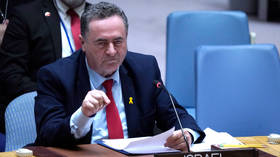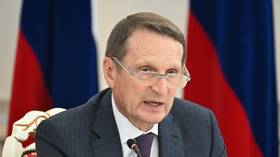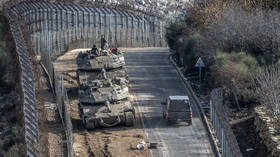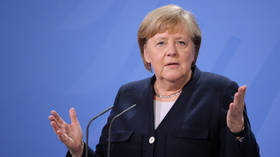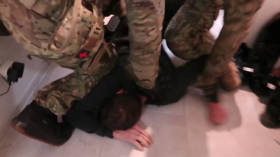EU takes over from UN in Kosovo
A new European Union mission – EULEX – will take over from the United Nations in advising on the administration of policing and justice in Kosovo. Both Albanians and Serbs there hope that the new mission will help bring war criminals
The police in Pristina have their hands full. Drug cartels, fraud, corruption and human trafficking – they've seen it all in just nine years of existence – but the biggest headache of all is trying to track down war criminals. It’s tough in a post war landscape where Serbs and Albanians are unlikely to trust one another, let alone work together in securing an arrest. Running a police force between the lines and hunting war criminals at the same time is proving a very difficult job.
Captain Veton Elshani was twenty-three when he joined the Kosovo Liberation Army. Now he has a complicated task of building police credibility.
“It's very a delicate matter. For some more time people may have thought that the Kosovo police will take sides. People see one side as heroes, the other not. That's why it’s good that we’ve had UNMIK police here,” says Elshani.
Until now, UNMIK – the United Nations Mission in Kosovo – has helped the Kosovo police, but now UNMIK is pulling out and the European Union is taking over.
“UNMIK is downsizing dramatically. We will be down by 70 per cent. Our main function will be facilitating dialogue between Pristina and Belgrade. And also, during the reconfiguration period, we’ll deal with the police and justice,” says UNMIK spokesman Alexander Ivanko.
One reason why some people in Kosovo may not be sorry to see UNMIK go is that UN forces failed to arrest and extradite some of the country's most notorious war criminals. Many now hope EULEX, run by the European Union, will make a difference.
So far, former Prime Minister of Kosovo Ramush Haradinaj is the only Kosovo Albanian leader to stand trial in The Hague. In April he was acquitted of charges of killing forty civilians. Serbs were stunned, and his return home only fuelled feelings that the courts were against them. Now with Radovan Karadzic in the dock, old wounds are opening.
On the other side of the fence the Albanians feel equally aggrieved pointing out that no Kosovo Serbs have ever been indicted. They look to EULEX for change.
Tome Gashi, political advisor to the Prime Minister of Kosovo, is one of them.
“I think EULEX will handle the case, and find out who was responsible for killing 15,000 Albanians in the war because until now only Albanians were indicted for war crimes, but I don't remember any Serbs being found guilty of war crimes. Who killed those 15,000 people? That is a UNMIK mistake and UNMIK failed because of that. We hope EULEX will do completely opposite,” he says.
Yet the European mission has its own problems. So far they have fewer judges and police than they need, but they are trying to put on a brave face.
“It's going to be the largest ever EU mission. The aim is to assist the local authorities up to European standards, and a mentoring mission to Albanians and minority communities here as well,” says Roy Reeve, EULEX Kosovo Deputy Head.
Many Albanians making up 90 per cent of Kosovo's population welcome EULEX, while Kosovo Serbs are not happy.
“If EULEX takes over from UNMIK I have every reason to believe it is going to be more difficult for Serbs to live in Kosovo, given the fact that the people who run EULEX have already demanded that Serb areas north Kosovo, where Serbs live and feel safe because they have their own police, should be incorporated into Kosovo,” says Ljiljana Smajlovic of the Politika newspaper.
The Serbs say they'll never recognize the state of Kosovo, let alone be swallowed up by it. The war may be over, but the old hatred and divisions continue to simmer.





